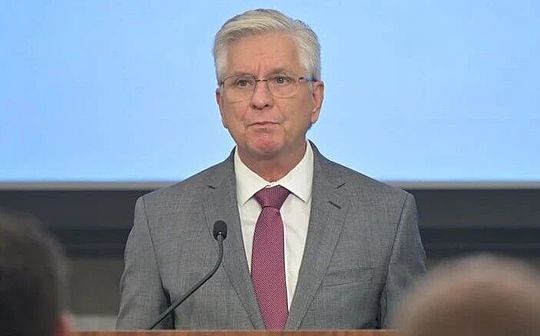
Zhao Ying, Wall Street Insights
According to the latest media reports, large Bitcoin holders are transferring wealth from the blockchain to Wall Street balance sheets. A new generation of ETFs provides a new way for cryptocurrency rich people to incorporate digital assets into the regulated financial system – without selling, and through funds operated by large asset management companies such as BlackRock.
A regulatory change this summer opened the door to this trend by allowing large investors to hand over Bitcoin to ETFs in exchange for fund shares through “barter” transactions..This trading method is already widely used in most ETFs, but it was only approved for Bitcoin products in July this year.
This process is generally tax neutral, does not involve the exchange of cash, and is not recorded as a sale.The result is a volatile digital asset that is converted into a line item on a brokerage account statement — one that can be more easily borrowed as collateral, pledged, or passed down to heirs.
Robbie Mitchnick, BlackRock’s head of digital assets, revealed that the company has facilitated more than $3 billion in such conversion transactions.Bitwise Asset Management said it now receives inquiries from investors every day about transferring their holdings to wealth management platforms.Liquidity provider Galaxy has processed several conversion transactions.
From rebellion to regression: Bitcoin embraces the traditional financial system
It’s the latest transformation of the world’s largest cryptocurrency, which was born as a decentralized revolt against mainstream financial institutions and is now being quietly co-opted by those same institutions.Its anti-establishment holders are increasingly realizing that some parts of finance are more accessible through traditional systems.
By exchanging Bitcoin for ETF shares, investors can maintain the same exposure to the cryptocurrency while converting it into a form recognized by the financial system.
Within a brokerage account, these positions can be pledged as collateral, borrowed, or included in estate planning—operations that would be cumbersome, risky, or even impossible in private digital wallets.ETF wrappers provide legitimacy and convenience, turning wealth that was once outside the system into assets that banks and advisors can handle.
Teddy Fusaro, president of Bitwise, which completed its first physical swap transaction through its BITB ETF in August this year, said there are still benefits to holding assets within the traditional financial system.
Wealth management service upgrade drives conversion demand
Fusaro gave an example of the practical benefits of switching: an investor with a $1 million portfolio on a wealth management platform and an additional $5 million worth of Bitcoin held in a hardware wallet.Your wealth management platform will treat you as a $1 million customer,” Fusaro said. “If you transfer $5 million in Bitcoin into a Bitcoin ETF and hold it on the wealth management platform, you can get a higher level of service.”
Mitchnick said large Bitcoin holders are realizing “the convenience of being able to hold exposure with an existing financial advisor or private banking relationship,” which is one of the big reasons for switching..
He declined to disclose the exact number of trades processed by the BlackRock IBIT ETF, but said further regulatory clarity would expand trading volumes and the participation of large banks.He revealed that customer inquiries range from wanting to convert 20% of Bitcoin into ETF form, to switching completely to traditional finance.
“There are some people who choose to convert 100%, saying, ‘Integrating all the assets in this way is the easiest way for me to hold them in the future,'” he said.
Wall Street’s deepening role
More Wall Street institutions may soon take advantage of these barter transactions.BlackRock said banks already play a limited role in facilitating these trades – particularly in the creation of ETFs – although currently only non-bank broker-dealers can handle full trades.
Wes Gray, CEO and founder of Alpha Architect, an ETF company that specializes in tax strategies, said: “Life is easier in traditional finance – we have spent a century perfecting integration, access and security. Bitcoin holders are finally realizing this. The great irony, of course, is that Bitcoin was born as an escape from traditional finance – and now its largest holders are trying to return.”
BlackRock pointed out that with further regulatory clarification, it is expected that more investors and financial institutions will participate in such conversion transactions, promoting Bitcoin to be more deeply integrated into the mainstream financial system.






